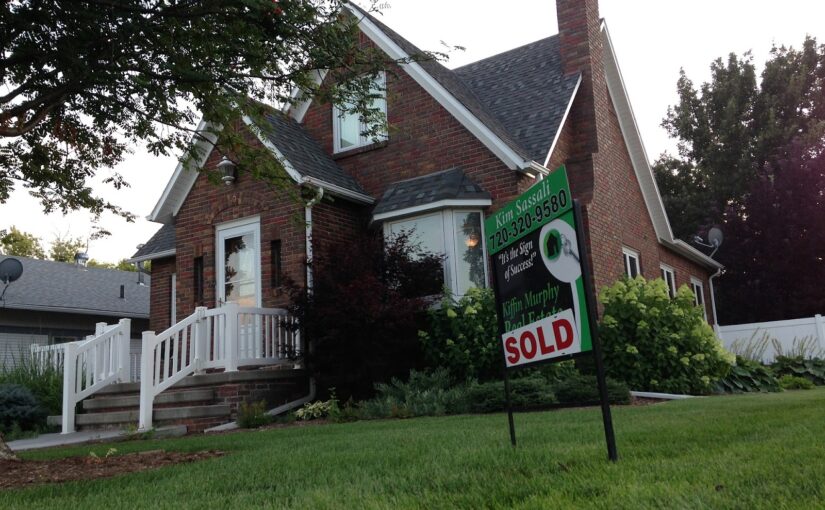Selling a home in a hot market may seem like a fantasy come true—there are eager buyers, bidding wars are the thing of the day, and houses are selling fast. But just because the market is red hot doesn’t mean sellers are even safe from making blunders costing thousands. The speed of a competitive market sometimes prompts homeowners to move hastily into decisions without adequate planning.
When it comes down to selling your main property or Sell Inherited House quickly, there are mistakes to avoid. Here are the most common mistakes homeowners make and how to avoid making them.
1. Overpricing the Home
One of the most common errors made by sellers in a desirable market is overpricing their property. The impulse is strong—if properties are being snapped up and there’s no shortage of interest in making the market over, why not lovely oversized?
However, being too aggressive with the asking price can scare off potential buyers. Even in a hot market, buyers are smart, and frequently utilized agents will recognize an overpriced listing from a mile away. Rather than selling your home for an unrealistic price, use the help of a real estate professional to price your home based on good comparable sales and turn demand-or, rather, lack thereof – to your advantage.
2. Skipping Pre-Sale Home Preparation
Even during a hot market, buyers won’t look past a dirty house. Some sellers believe they can save money on cleaning, staging, or small repairs, but it will bite them. First impressions count—cluttered rooms, a coat of peeling paint, or lime-scrubbing vapors will get buyers to go elsewhere.
Even a red-hot market doesn’t eliminate the value of curb appeal or presentation. Investing in the time to clean, declutter, stage, and address any little repairs can accelerate a house sale at a higher price and faster.
3. Not Considering Timing and Strategy
In a fast real estate market, when selling a house, you feel pressured to act quickly. However, selling in a hurry without a well-planned strategy can come back to haunt you.. Consider the best timing—when will your house be looking its best? When is your area busiest by buyers?
Also, think about your move in advance – do you have another residence to move to? Do we have a tight timeline for a fast closeout? Having a strategy on hand can enable you to stay away from extra pressure and surprises.
4. Underestimating the Importance of Marketing
Some sellers presume that their home will just sell itself in a great market. While homes sell promptly, that doesn’t mean you don’t market a home. Still strong: good pictures, well-worded listing descriptions, virtual images, social media, and all that.
A well-constructed marketing plan draws more buyers, increasing the chances of multiple offers, and spiking the price. Don’t wish it on a prayer market intelligently to a skate—resolve out of competition.
5. Letting Emotions Interfere
Selling the house is an emotional thing, especially if it’s the house where you make your memories. But deciding with emotions will allow you to get in trouble. As an example, becoming upset with a low offer or belittling buyer demands during offers is going to turn away potential buyers.
Attempt to treat the sale as a business transaction, and keep focus on the finish line–selling your home for the highest possible offer and terms.
6. Poorly Staging the Home
Even in a seller’s market, presentation matters. A well-done home gives buyers the sense of being there and can have a huge impact on the sale price. Don’t assume that since houses are selling fast, it’s not worth it to stage.
Professional staging will make your home showcase its best features, its smallest flaws forgotten, and create a welcoming ambiance that will differentiate you even in a fast-selling market.
7. Selling Without Professional Help
Some homeowners believe that selling their home on their own (FSBO – For Sale By Owner) will avoid paying a commission. Speakers sell themselves in that picture all day long, but it usually causes reckonings—pricing mistakes, mishandled negotiations, legal mistakes, and lost chances.
In the middle of the sale of a house, some of these homeowners, including those having to sell inherited houses urgently due to estate dealings or sudden life changes. In such cases, professional advice is even more important.
8. Ignoring the Fine Print
In a hurry to seal the deal, sellers commonly gloss over the contract’s fine print—granny clauses, repair riders, flyers, and the buyer’s funding.
Don’t just look at the sale price; carefully read over all the terms with your agent or real estate attorney. A good deal in writing can have unfavorable terms, and omitted essential clauses can delay or forestall your closing.
Conclusion:
It’s hard to resist the temptation that selling in a hot market equals making money with your eyes closed, but in reality, it is not that simple. The absolute speed and level of competition in such liquidity markets require a tactical, structured request. With the typical blunders listed above–overpricing, insufficient preparation, emotional decisions, and so on left behind, you can guarantee a straightforward, effective sale that comes with your achieving financial and personal goals.
If you are a first-time seller or want to sell an inherited house, here is a little information that you need to know: selling an inherited house involves careful consideration of various factors, including valuation, finances, emotions, and expert guidance. Make wise choices early to have an easy situation and get the most out of your profit when the deal is done.














